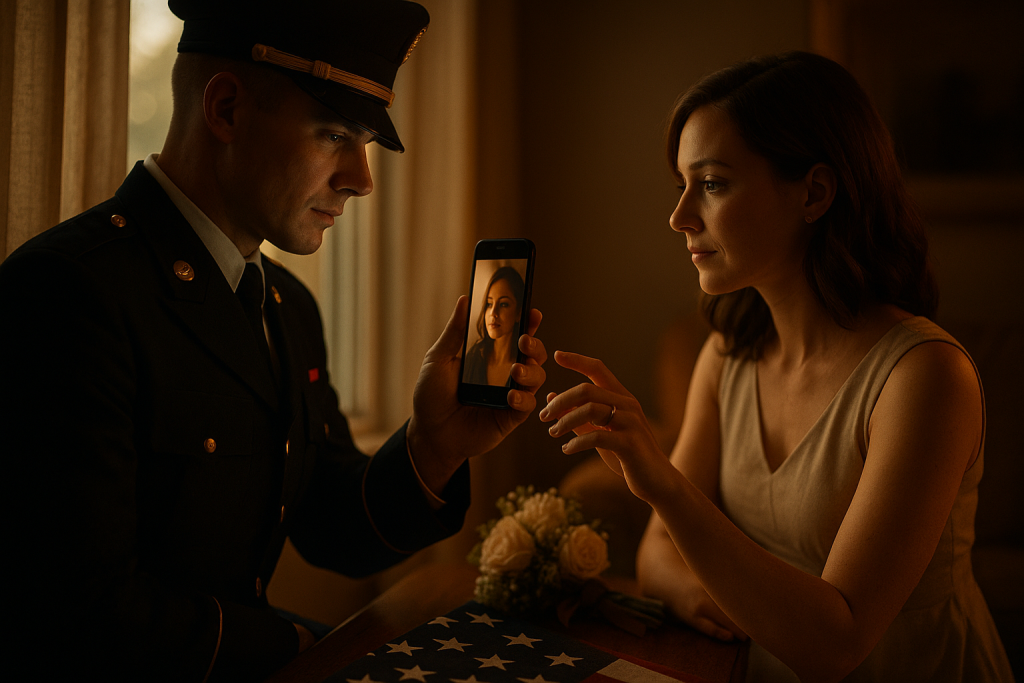Planning a virtual marriage ceremony? Congratulations! Embracing technology allows you to celebrate your love in unique and personalized ways. Here’s a comprehensive guide to help you navigate the process and create a memorable online wedding.
Understanding Virtual Marriage Ceremonies
A virtual marriage, often referred to as an online wedding or Zoom marriage, enables couples to legally tie the knot via video conferencing platforms. This option is ideal for long-distance relationships, international couples, or those seeking a convenient and intimate ceremony. At Virtual Same Day Marriage, we specialize in facilitating seamless and legally recognized virtual weddings. Learn more about our services on our Home page.
Legal Considerations and Requirements
Before proceeding, it’s crucial to understand the legalities involved. Virtual marriages are legally recognized in many jurisdictions, but requirements can vary. Generally, you’ll need:
- Valid government-issued photo IDs for both partners.
- A reliable internet connection with video capabilities.
- A licensed officiant authorized to perform virtual ceremonies.
For a detailed breakdown of state-specific regulations, refer to our State-by-State Guide: Virtual Marriage Legal Status in the U.S.
Choosing the Right Platform
Selecting a suitable platform is essential for a smooth ceremony. Popular options include Zoom, Skype, and Google Hangouts. Ensure the platform supports:
- High-quality video and audio.
- Recording capabilities for preserving the ceremony.
- Easy access for guests with varying technical skills.
Test the platform beforehand to address any technical issues. For more tips on hosting a virtual wedding, check out our Virtual Marriage Ceremony Live Interaction Tips.
Personalizing Your Ceremony
Even though your wedding is virtual, it can still reflect your personalities and love story. Consider incorporating:
- Customized vows that resonate with your journey.
- Special readings or cultural traditions.
- Interactive elements like a virtual guestbook or live music performances.
For inspiration, explore our Virtual Wedding Ceremony Styles You Can Copy.
Inviting Guests and Managing RSVPs
Send out digital invitations well in advance, providing clear instructions on how to join the ceremony. Include:
- Date and time, considering different time zones if applicable.
- Platform access details and any necessary passwords.
- Etiquette guidelines, such as muting microphones during the ceremony.
Utilize online tools to track RSVPs and communicate updates effectively.
Ensuring a Smooth Ceremony
To minimize disruptions:
- Conduct a rehearsal to familiarize everyone with the platform.
- Assign roles, such as a moderator to manage technical aspects.
- Prepare backup plans for potential technical issues.
For more detailed planning assistance, visit our How It Works page.
Post-Ceremony Considerations
After the ceremony:
- Ensure all legal documents are signed and submitted promptly.
- Send thank-you notes to guests and participants.
- Share recordings or photos of the event with loved ones.
If you require an apostille for international recognition or certified translations, our Apostille Service and Certified Translations are here to assist.
FAQs
Is a virtual marriage legally recognized?
Yes, virtual marriages are legally recognized in many jurisdictions. It’s essential to verify the specific requirements in your area. Our State-by-State Guide provides detailed information.
Can we include traditional elements in our virtual ceremony?
Absolutely! Many couples incorporate traditional rituals, readings, and even unity ceremonies into their virtual weddings. Personalizing your ceremony adds a meaningful touch.
How do we handle technical issues during the ceremony?
Conducting a rehearsal, assigning a tech-savvy moderator, and having backup plans can help manage potential technical difficulties effectively.
What if our guests are in different time zones?
Choose a time that accommodates the majority of your guests and provide clear instructions on the time zone. Recording the ceremony allows those who can’t attend live to watch later.
Can we have a virtual reception after the ceremony?
Yes! Hosting a virtual reception with games, toasts, and music can extend the celebration and engage your guests.
Planning a virtual marriage ceremony offers flexibility and creativity. By focusing on personalization, legal requirements, and technical preparations, you can create a memorable and meaningful online wedding. For personalized assistance and to start planning your virtual wedding, contact us today!




